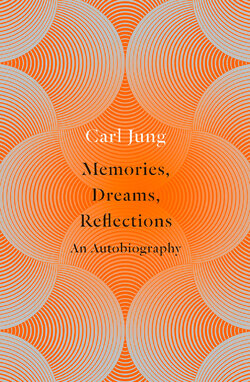Читать книгу Memories, Dreams, Reflections - Карл Густав Юнг - Страница 6
PROLOGUE
ОглавлениеMy life is a story of the self-realisation of the unconscious. Everything in the unconscious seeks outward manifestation, and the personality too desires to evolve out of its unconscious conditions and to experience itself as a whole. I cannot employ the language of science to trace this process of growth in myself, for I cannot experience myself as a scientific problem.
What we are to our inward vision, and what man appears to be sub specie aeternitatis, can only be expressed by way of myth. Myth is more individual and expresses life more precisely than does science. Science works with concepts of averages which are far too general to do justice to the subjective variety of an individual life.
Thus it is that I have now undertaken, in my eighty-third year, to tell my personal myth. I can only make direct statements, only “tell stories.” Whether or not the stories are “true” is not the problem. The only question is whether what I tell is my fable, my truth.
An autobiography is so difficult to write because we possess no standards, no objective foundation, from which to judge ourselves. There are really no proper bases for comparison. I know that in many things I am not like others, but I do not know what I really am like. Man cannot compare himself with any other creature; he is not a monkey, not a cow, not a tree. I am a man. But what is it to be that? Like every other being, I am a splinter of the infinite deity, but I cannot contrast myself with any animal, any plant or any stone. Only a mythical being has a range greater than man’s. How then can a man form any definite opinions about himself?
We are a psychic process which we do not control, or only partly direct. Consequently, we cannot have any final judgment about ourselves or our lives. If we had, we would know everything — but at most that is only a pretence. At bottom we never know how it has all come about. The story of life begins somewhere, at some particular point we happen to remember; and even then it was already highly complex. We do not know how life is going to turn out. Therefore the story has no beginning, and the end can only be vaguely hinted at.
The life of man is a dubious experiment. It is a tremendous phenomenon only in numerical terms. Individually, it is so fleeting, so insufficient, that it is literally a miracle that anything can exist and develop at all. I was impressed by that fact long ago, as a young medical student, and it seemed to me miraculous that I should not have been prematurely annihilated.
Life has always seemed to me like a plant that lives on its rhizome. Its true life is invisible, hidden in the rhizome. The part that appears above ground lasts only a single summer. Then it withers away — an ephemeral apparition. When we think of the unending growth and decay of life and civilisations, we cannot escape the impression of absolute nullity. Yet I have never lost a sense of something that lives and endures beneath the eternal flux. What we see is blossom, which passes. The rhizome remains.
In the end the only events in my life worth telling are those when the imperishable world erupted into this transitory one. That is why I speak chiefly of inner experiences, amongst which I include my dreams and visions. These form the prima materia of my scientific work. They were the fiery magma out of which the stone that had to be worked was crystallised.
All other memories of travels, people and my surroundings have paled beside these interior happenings. Many people have participated in the story of our times and written about it; if the reader wants an account of that, let him turn to them or get somebody to tell it to him. Recollection of the outward events of my life has largely faded or disappeared. But my encounters with the “other” reality, my bouts with the unconscious, are indelibly engraved upon my memory. In that realm there has always been wealth in abundance, and everything else has lost importance by comparison.
Similarly, other people are established inalienably in my memories only if their names were entered in the scrolls of my destiny from the beginning, so that encountering them was at the same time a kind of recollection.
Inner experiences also set their seal on the outward events that came my way and assumed importance for me in my youth or later on. I early arrived at the insight that when no answer comes from within to the problems and complexities of life, they ultimately mean very little. Outward circumstances are no substitute for inner experience. Therefore my life has been singularly poor in outward happenings. I cannot tell much about them, for it would strike me as hollow and insubstantial. I can understand myself only in the light of inner happenings. It is these that make up the singularity of my life, and with these my autobiography deals.
